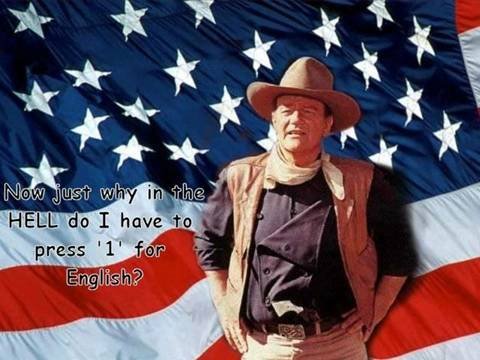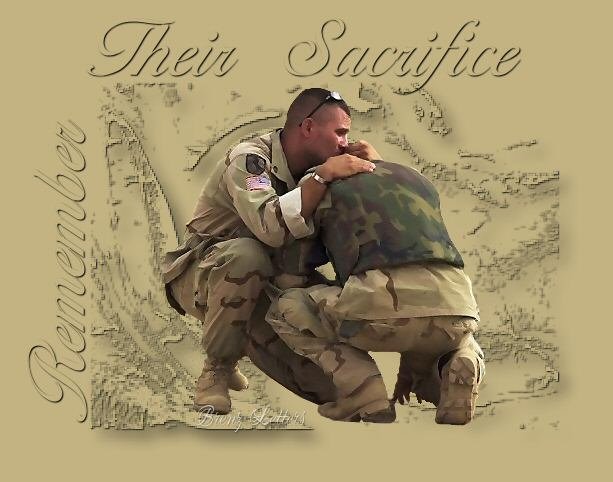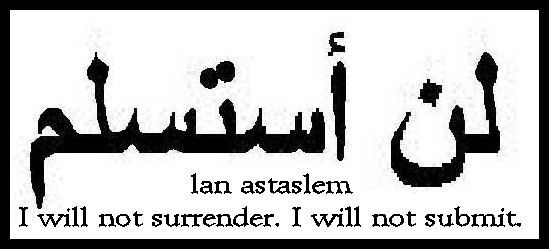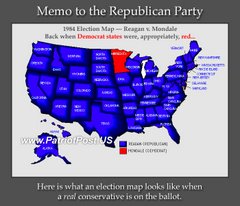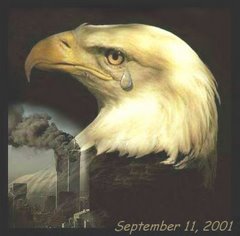A Tale of Two Nations
Hat tip to Courtney of GrEaT sAtAn"s gIrLfRiEnD
I am going to tell you the tale of 2 Muslim nations. Both of these are in the continent of Europe. Both suffered under communism first then Serbia. Both have a long history of Muslim/Christian/Jewish relationships that spanned centuries. But each one has taken a different course in how they are shaping into a Muslim nation.
First we have Bosnia:
Official known as Bosnia and Herzegovina,Bosnia has been inhabited at least since the Neolithic age. In the early Bronze Age. Conflict between the Illyrians and Romans started in 229 BC, but Rome would not complete its annexation of the region until 9 CE. In the Roman period, Latin-speaking settlers from all over the Roman empire settled among the Illyrians and Roman soldiers were encouraged to retire in the region.
The Ottoman conquest in 1463 of Bosnia marked a new era in the country's history and introduced drastic changes in the political and cultural landscape of the region. Although the kingdom had been crushed and its high nobility executed, the Ottomans nonetheless allowed for the preservation of Bosnia's identity by incorporating it as an integral province of the Ottoman Empire with its historical name and territorial integrity — a unique case among subjugated states in the Balkans.
The four centuries of Ottoman rule also had a drastic impact on Bosnia's population make-up, which changed several times as a result of the empire's conquests, frequent wars with European powers, migrations, and epidemics. A native Slavic-speaking Muslim community emerged and eventually became the largest of the ethno-religious groups (mainly as a result of a gradually rising number of conversions to Islam).
In the late 17th Century the Ottoman Empire's military misfortunes caught up with the country, and the conclusion of the Great Turkish War with the treaty of Karlowitz in 1699 once again made Bosnia the Empire's westernmost province. The following hundred years were marked by further military failures, numerous revolts within Bosnia, and several outbursts of plague.
The Ottomans conceded the region to the Austro-Hungarian Empire in 1878. It was on 28 June 1914 that Archduke Franz Ferdinand, was assassinated in Sarajevo, by Serb nationalist youth Gavrilo Princip. This was the catalyst that started World War I.
After World War I, Bosnia was incorporated into the First Yugoslavia. This nation survived until 1941 and World War II. The Germans invaded Yugoslavia in 1941. Josip Broz Tito formed the Anti-Fascist Council of National Liberation of Yugoslavia on 25 November 1943. Tito led the resistance to the Nazis until Yugoslavia was liberated.
After World War II, Yugoslavia became a client state of the Soviet Union and a member of the Warsaw Pact.
With the fall of communism and the start of the break-up of Yugoslavia, the old communist doctrine of tolerance began to lose its potency, creating an opportunity for nationalist elements in the society to spread their influence. A declaration of Bosnia and Herzegovina sovereignty in October 1991 was followed by a referendum for independence from Yugoslavia in February and March 1992 boycotted by the great majority of the Serbs. The turnout in the independence referendum was 63.7% and 99.4% voted for independence. Bosnia and Herzegovina declared independence shortly afterwards. Following a tense period of escalating tensions and sporadic military incidents, open warfare began in Sarajevo on 6 April. The civil war that followed was some of the bloodiest that Europe had seen in decades.
Today Bosnia is considered a Muslim nation, with Islamic Jihadists using the nation for training and supplies.
The Dayton Peace Accords called for the removal of foreign combatants from Bosnia after the Balkans war. But hundreds of mujahedeen fighters stayed, and today they are successfully spreading their fundamentalist Islamist views.Not a pretty picture Bosnia is turning out to be. Wahhabis (sponsored, taught and supplied by Saudi Arabia) is forcing their version of Islam on the land. Pretty soon all women will be striped of their rights, gays hung, adulterers stoned, hands cut off for stealing. All the vestiges of a truly modern Muslim nation.
Thick iron bars block the entrance to Abu Hamza's store in Sarajevo's Islamic shopping center. Affixed to the bars is a handwritten note: "My Bosnian citizenship has been revoked. I have to defend myself, and for this reason my store is only open sporadically."
Abu Hamza, a bearded 42-year-old man originally from Syria, sits in his store among colorful veils and gold-embroidered tunics and speaks in a gentle voice about Bosnia's fate. He believes that there will be either an evolution of true Islam or a revolution.
Abu Hamza is one of the stars among the missionaries who want to spread a strict interpretation of Islam in Bosnia. He came here in the early 1990s, one of thousands who aided their Muslim brothers in the war against the Serbs. In return, they were given Bosnian citizenship.
This meant that they were "nationalized" and thereby did not fall under the provisions of the Dayton Peace Accords, which stipulated that all foreign combatants had to leave the country. The United States in particular was annoyed by the trick and, under pressure from Washington, a Bosnia government commission revoked the Bosnian citizenship of nearly 400 "suspected mujahedeen of foreign heritage," including Abu Hamza. The suspects are believed to have ties to Islamic
Terrorism experts fear Bosnia could become a base for extremists, since many Bosnian Muslims have become radicalized through the influence of foreign combatants as well as the charitable Islamic organizations that spread their beliefs with money.
Before the war, women in full-body coverings and men with long beards were a rare sight. Today, though, they hardly turn a head.
Wahhabism is quickly gaining ground in the country, with polls showing that 13 percent of Bosnian Muslims support the conservative Sunni Islam reform movement. The movement is financed primarily by Saudi Arabian backers, who have invested well over a half-billion euros in Bosnia's development -- especially in the construction of over 150 mosques. The 8,187 square meter (88,124 square foot) King Fahd Mosque in Sarajevo alone cost €20 million ($29 million), and it's also where radicals go to pray.
In trying to transform the country into a theocracy, the new preachers of fundamental Islam aren't just fighting with the Koran. In Kalesija, militant Wahhabis drove out the local imam after a fight between local Muslims and the Wahhabis. In the village of Dedici, residents took up their shotguns to defend their mosque against the attacking fanatics. Recently, the Careva Mosque (Emperor's Mosque) in Sarajevo locked its doors during prayer for the first time in its 441-year history when a group of Wahhabis tried to enter and perform their own prayer rites.
Full Story
Now let us look at Kosovo:
The history of Kosovo is very similar to the history of Bosnia. Like Bosnia it was conquered by the Roman, Christianized, then conquered by the Ottoman Empire. After World War I it was incorporated into Yugoslavia.
During the Neolithic period, the region of Kosovo lay within the extent of the Vinča-Turdaş culture. In the 4th to 3rd centuries BCE, it was the territory of the Thraco-Illyrian tribe of the Dardani. The territory of present-day Kosovo was conquered by Rome in the 160s BCE, and made the Roman province of Illyricum in 59 BCE. The Kosovo region became part of Moesia Superior in 87 CE. The "Slavic migrations" reached the Balkans in the 6th to 7th century, whereby autochthonous peoples merged with the northern newcomers. Kosovo was absorbed into the Bulgarian Empire in the 850s, where Christianity and a Byzantine-Slavic culture was cemented in the region. It was re-taken by the Byzantines after 1018. As the center of Slavic resistance to Constantinople in the region, it often switched between Serbian and Bulgarian rule on one hand and Byzantine on the other until the Serb principality of Rascia conquered it by the end of the 11th century. Fully absorbed into the Serbian Kingdom until the end of the 12th, it became the secular and spiritual centre of the Serbian medieval state of the Nemanjić dynasty in the 13th century, with the Patriarchate of the Serbian Orthodox Church in Peć, while Prizren was the secular center. The zenith was reached with the formation of a Serbian Empire in 1346, which after 1371 transformed from a centralized absolutist medieval monarchy to a feudal realm. Kosovo became the hereditary land of the House of Branković and Vučitrn and Pristina flourished.
In the 1389 Battle of Kosovo, Ottoman forces defeated a coalition of Serbs, Albanians, and Bosnians led by the Prince Lazar Hrebeljanović. Soon after parts of Serbia accepted Turkish vassalage and Lazar's daughter was married to the Sultan to seal peace. In 1402, a Serbian Despotate was raised and Kosovo became its richest territory, famous for mines. The local House of Branković came to prominence as the local lords of Kosovo, under Vuk Branković, with the temporary fall of the Serbian Despotate in 1439. By 1455, it was finally and fully conquered by the Ottoman Empire.
Prior to world War II, no entity by the name of Kosovo had existed where-as in the Ottoman Empire (which previously controlled the territory), it had been a vilayet with its borders having been revised on several occasions.
The violent oppression and forced expatriation of Albanians resumed, particularly after 1953, when Josip Broz Tito reached an agreement with Turkish Foreign Minister Mehmet Fuat Köprülü to push Yugoslavian Albanians to declare themselves Turks and leave for Turkey. The harsh repressions and expatriations came to an end in July 1966. But inter-ethnic tensions continued on and off for decades afterwards culminating in the Kosovo War and the Rambouillet Accords. This led to NATO intervention between 24 March and 10 June 1999. The United Nations then stepped in with Security Council Resolution 1244.
The Assembly of Kosovo approved a declaration of independence on 17 February 2008. The Republic of Kosovo is a parliamentary representative democracy. The executive power is exercised by the Government of Kosovo led by the Prime Minister of Kosovo. Two or three of the ministers, depending on the size of the government, are required to be from the minorities. The President of the Republic of Kosovo is the head of state. The judiciary is independent. The legislative power is exercised by the single-chamber Assembly of Kosovo consisting of 120 members, 100 of them directly elected by the people for a four-year term and twenty seats reserved for representatives of the ethnic minorities only. The assembly elects the president for five years and approves the government.
A new constitution for the Republic of Kosovo was approved by the Parliament of the Republic of Kosovo, coming to force on June 15th, 2008.
Kosovo is considered a Muslim nation of Albanian decent. And maybe that's why it has this attitude towards its faith.
On February 17, 2008, Kosovo declared independence from Serbia, becoming the newest country in the world—and one of the most unusual. Most of its citizens are Muslim, an oddity in Europe; further, unlike most Muslim-majority nations, Kosovo is overwhelmingly pro-American, and its relations with Israel are excellent as well. No Arab countries have recognized the new nation’s existence yet, and only Saudi Arabia has said that it will. Perhaps this isn’t surprising, since Kosovars differ more radically from their brothers in the Arab world than any other Islamic people on earth.It is a telling tale that Bosnian Muslims joined the Nazis in World War II and helped to round up many of their Jewish neighbors. At the same time the Muslims of Kosovo were hiding their Jewish neighbors and thus saving their lives. Saudi Arabia offered each nation a new mosque in their capital. Kosovo rejected the idea and Bosnia accepted it. Saudi Arabia has been trying to instill Wahhabism into both nations. It is working in Bosnia, but Kosovo has rejected it.
Most of this difference is probably news to distant observers. Kosovo lies in the former Yugoslavia on Europe’s Balkan peninsula, a distant corner of southeastern Europe where relatively few travelers venture. The fog of war never really lifted after the combatants’ guns fell silent in 1999. The grievances that animated the warring parties seemed inscrutable to many Westerners, who often didn’t understand why Western powers got involved in the first place. Yet despite their obscurity, Kosovars today stand as a rebuttal to the notion that Muslims will be forever shackled to authoritarian rule and wedded to war with the modern, pluralistic “Other.”
About 90 percent of Kosovo’s 2 million inhabitants are ethnic Albanians; 7 percent are Serbs. Of the Albanians, about 3 percent are Catholic, and all the rest are at least nominal Muslims; the Serbs, meanwhile, are all Orthodox Christians. Against this backdrop, many observers interpreted the Balkan wars that tore Yugoslavia to pieces during the 1990s as an inevitable resurgence of ancient hatreds in a post-Communist ideological vacuum.
Ethnic conflict was relatively new to the area. “There have been many battles and wars in Kosovo over the centuries,” historian Noel Malcolm writes in Kosovo: A Short History, “but until the last 100 years or so none of them had the character of an ‘ethnic’ conflict between Albanians and Serbs. Members of those two populations fought together as allies at the battle of Kosovo in 1389—indeed, they probably fought as allies on both sides of that battle.”
Nevertheless, Milošević used the ancient grievance, along with others both real and imagined, to kindle Serbian nationalism—“a totalitarian ideology,” as Serbian writer Filip David calls it. Three months after his speech at Kosovo Polje, Milošević revoked Kosovo’s political autonomy and imposed an apartheid-like system on its ethnic Albanian majority. There followed three wars in the breakaway republics of Slovenia, Bosnia, and Croatia, and then a fourth of ethnic cleansing in Kosovo at a time when the United States and NATO were in no mood to tolerate any more violent destabilization in Europe. NATO bombarded Yugoslav targets for two and a half months in 1999 until Milošević capitulated and relinquished control of Kosovo to NATO and Russia.
Though Albanian nationalism is less ideological than Serbian nationalism, it, too, can express itself through ugly outbursts of violence. After ethnic Albanian refugees returned to Kosovo under NATO protection in 1999, some lashed out at Serb civilians, houses, and Orthodox churches. Another wave of anti-Serb violence broke out in 2004, following rumors that Albanian children had drowned in the Ibar River after being chased off by Serbs.
Some observers, especially in Serbia, have blamed the violence in 1999 and 2004 on Islamist jihadists. Those who live and work in Kosovo, and who are charged with keeping the peace, dismiss the allegation. “We’ve been here for so long and not seen any evidence of it that we’ve reached the assumption that it is not a viable threat,” says Zachary Gore, a U.S. Army sergeant stationed in eastern Kosovo.
Kosovo’s brand of Islam may be the most liberal in the world. I saw no more women there wearing conservative Islamic clothing—one or two per day at most—than I’ve seen in Manhattan. There is no gender apartheid even in Kosovo’s villages. Alcohol flows freely in restaurants, cafés, and bars, where you’ll see as many young women in sexy outfits as you’d find in any Western European country. Aside from the minarets on the skyline, there is no visible evidence that Kosovo is a Muslim-majority country at all.
“Here people are Muslims, but they think like Europeans,” says Xhabir Hamiti, a professor in the Islamic studies department at the University of Pristina in Kosovo’s capital. “Muslims here identify themselves as Muslim Lite,” an American police officer tells me. As Afrim Kostrati, a young bartender, puts it: “We are Muslims, but not really.” And Luan Berisha, an entrepreneur, agrees: “We were never practicing Muslims like they are in the Middle East. . . . First of all, we are Albanians. Religion comes second.”
Religion in Kosovo is a private matter, not a public one. “We never talk about it,” Berisha says. “I just found out, one year ago, that a very good friend of mine is Catholic, and we have been friends for the last ten years.” One Muslim woman tells me how startled she was when she attended a conference in Britain about young people who change the world. “I was shocked to find that the representative of the U.S.A. was a covered lady, originally from Iraq,” she says. “And the representative from Canada was another, originally from Afghanistan.” She herself was wearing shorts.
The reason for Kosovo’s relaxed attitude toward religion lies in its history. Albanians, including those in Kosovo, are the descendants of ancient pagan Greeks and Illyrians; more recently, they were Christian before the majority converted to Islam under Turkish Ottoman rule. Their religion may be Eastern, but Albanians have been culturally European for all of recorded history. “The Greeks hardly regard them as Christians, or the Turks as Muslems, and in fact they are a mixture of both, and sometimes neither,” Lord Byron wrote of them almost 200 years ago. “We Albanians,” writes Catholic priest Dom Lush Gjergji, “descendants of the Illyrians, are Christians from the time of the Apostles. . . . Without Christianity there would be no Albanian people, language, culture, or traditions . . . Albanians consider Christianity their patrimony, their spiritual and cultural inheritance.”
Indeed, another sign of Kosovo’s complex religious identity involves the “crypto-Catholics,” those who just went through the motions of converting to Islam under the Ottomans. Kosovo’s cemeteries hold many tombstones engraved with Muslim names yet bearing the Catholic cross. Even now, the crypto-Catholics’ descendants are still “christened,” so to speak, with Muslim names, and then baptized into the church.
Many Kosovars are starting to convert “back” to Christianity. Café owner Gazi Berlajolli ascribes the trend partly to American influence. “Most of these people were atheists and agnostics, but they don’t want to be seen as atheist Muslims,” Berlajolli adds. “So they needed to convert to something else. They want to be able to put ‘Christian’ on their pages on Facebook.”
There is, however, a small group of radicals inside Kosovo who would like to transform moderate Balkan Islam into the much sterner Wahhabi variety practiced in Saudi Arabia. Several well-funded Saudis and other Gulf Arabs moved to Kosovo after the 1999 war to rebuild destroyed mosques and to impose Wahhabism on the decadent locals. Most ethnic Albanians across the political and religious spectrum in Kosovo resent these intrusions, partly because ornate Ottoman-style mosques destroyed by the Serbian military are being replaced with severe Wahhabi-style monstrosities, but also because hardly any Albanians seek guidance from the backward and authoritarian Arab world. “We don’t call them Wahhabis here,” a well-connected Albanian woman tells me. “We call them Binladensa, the people of bin Laden.” In Kosovo, that isn’t a compliment.
“We never had them before,” a young Albanian journalist says. “We hear these rumors that they are paying people”—to visit mosques and cover their hair, that is. I can’t confirm the rumor, but it’s widely believed, and I heard it from almost a dozen people. If true, it means that even the tiny minority who are willing to adopt the outward trappings of conservative Islam will do so only if they’re paid. If false, the fact that so many believe it reveals a broad contempt for rigid Arabic Islam and a belief that Albanian culture will not bend naturally to it. “You should see how the general public receives these people,” says a Kosovo human rights official. “They certainly are not liked. I don’t think they will succeed.”
Wahhabis are encountering resistance from Kosovo’s religious community as well as from its atheists and agnostics. “We are working very hard to stop these kinds of movements,” says Hamiti. “These kinds of movements are dangerous for all nations, for the faiths, for all religions. The traditional Islam that has been cultivated in these areas is the best guarantee for the future. If we allow foreigners to come here and to push us to war with their ideas, then the situation will be out of our control.”
Tellingly, Kosovo’s only Islamist party got just 1.7 percent of the vote in the last election. Not even during the 1999 war, when ethnic Albanians were desperate for help, were Islamists welcome in Kosovo. Contrast this with Bosnia, which did accept help from mujahideen: after the European community imposed an arms embargo on all warring sides in Yugoslavia, leaving the barely armed Bosnians to twist in the wind, about 1,000 veterans of the anti-Soviet insurgency in Afghanistan streamed into the country. “In Kosovo,” Berisha says, “they came to support us and we rejected them. . . . This is not jihad. We are not fighting for religion here. We are fighting for our freedom, for ourselves, and for our families.”
A big reason for Kosovars’ antipathy to radical Islamism is, in a word, America, which has been the political North Star for Albanians inside and outside Kosovo ever since NATO’s intervention in 1999. In 2004, a Gallup survey measured popular opinion of U.S. foreign policy around the world. Only ten countries rated American foreign policy favorably, and among those, Kosovo scored highest, registering 88 percent approval. When one ethnic Albanian I met happened to make the uncontroversial statement that Kosovo was a European country, another broke in. “We aren’t European,” she corrected. “We’re American.”
Repeatedly, I heard that Kosovars were America’s most reliable allies in the world. American flags fly just about everywhere outside the Serbian enclaves—some even in front of official buildings—and are sold at kiosks on the street, along with T-shirts that say Thank You USA. The Hotel Victory has erected the world’s second-largest replica of the Statue of Liberty on its roof, and I found another replica in the southeastern town of Vitina. Kosovars are fans of George W. Bush, both because he recognized Kosovo’s independence and simply because he’s the president. Graffiti in one Kosovar village proclaims thanks usa and bush. “You should have seen President Bush’s face when he came to Albania,” says a Kosovar Albanian who works with the United States Agency for International Development (USAID). “All over Western Europe he was met by protests, but the entire country of Albania turned out to welcome him.”
And Bill Clinton, who ordered the 1999 military intervention, is lionized. Izeir Mustafa is sculpting a statue of the former president that will soon be erected on a major traffic artery—renamed Bill Clinton Boulevard—leading from the airport into downtown Pristina. Many businesses are named after Clinton. I even found a patisserie and disco bar named “Hillary,” decorated with pictures of the ex-president and his wife.
“Americans are our best friends in the world,” a waiter said to me at one of Pristina’s finest restaurants. “The U.K. is second.”
“Thank you,” I said. “We appreciate that. Some people don’t like us.”
“Bad people,” he said.
Kosovar Albanians also strongly support, of all countries, Israel. “Kosovars used to identify with the Palestinians because we Albanians are Muslims and Christians and we saw Serbia and Israel both as usurpers of land,” a prominent Kosovar told journalist Stephen Schwartz. “Then we looked at a map and woke up. Israelis have a population of 6 million, their backs to the sea, and 300 million Arab enemies. Albanians have a total population of 8 million, our backs to the sea, and 200 million Slav enemies. So why should we identify with the Arabs?”
Berisha echoes the sentiment. “We have very much in common with Israel,” he says. “I would never side with the Muslim side to wipe Israel off the face of the world. Ninety percent of Kosovo feels this way.” Though that number sounds high, I didn’t meet anyone who said he felt otherwise. And Shachar Caspi, a Jewish Israeli restaurateur who moved from Tel Aviv to Kosovo, agreed. “Nobody has given me any problems or been against Israel,” he said. “Nobody here is radical. On the contrary, people are very warm, they are very nice, they have taken Islam to a beautiful place, not to a violent place. When they hear I am Israeli, they react very warmly.”
“Nobody cares?” I asked. Considering the vicious anti-Semitism that infects so much of the Muslim world, it was hard to believe. “On the contrary, people like it,” he said. “They come to speak to us. They want to be in contact. They tell me that in the Holocaust, they used to keep the survivors inside of shelters. And vice versa, in 1999 the first plane that landed in Pristina for [humanitarian] support was an Israeli plane.”
Few outside Albania and Kosovo know about the area’s heroism during the Holocaust, but the ethnic Albanians I met brought it up several times. “We sympathize a lot with the people who have suffered the same fate as us,” Berisha says. “We were Muslims even in the Second World War, stronger Muslims than now, but even then we protected sthe Jews] with our lives.” And Hamiti says, “Albanians everywhere are aware that Jews want to help them in this conflict. And Jews are aware and thankful to Albanians for saving their lives during the Second World War.”
After concluding my Kosovo trip, I attended a conference in Tirana, Albania, called “Albania, the Albanians, and the Holocaust.” Among those in attendance were Albania’s prime minister and president. Dan Michman, chief historian at Jerusalem’s Holocaust museum, Yad Vashem, was one of the speakers. “Is it really true that Jews had a 100 percent survival rate here during the Nazi occupation?” I asked him.
“Yes,” he said. “Actually, if you look inside the borders of ‘Little Albania’—excluding Kosovo and the Albanian regions of Montenegro and Macedonia—there were three times as many Jews living here at the end of the Holocaust as there were before the war started.” Albanians, Christian and Muslim alike, refused to surrender Jews to the Nazi authorities, and Jews were safer among Albanians than they were anywhere else in Nazi-controlled Europe.
There is a difference between Islam and the culture,” Hamiti says. “Islam is not the culture.” I’ve seen no more convincing evidence that he’s right than the politics and culture of Kosovo, which offer the hope that Muslims need not be enemies of Christians, Jews, and the West, and that Muslim societies are not inherently opposed to religious pluralism and democracy. True, Kosovo’s Muslims are very different from their Middle Eastern coreligionists. They often call themselves “culturally Christian”—because they’re immersed in a Christian-majority region and because they used to be Christians themselves—and one might with even more accuracy call them “culturally European.”
But they are Muslims nevertheless. And while the jihadist movements in the Middle East may appear to be an inevitable product of Islam, in many ways they are simply a religiously themed manifestation of the Arab world’s political backwardness. Perhaps Kosovo’s ethnic Albanians can even—as Mordechai Arbell, chairman of the World Jewish Congress Institute, said at the Tirana conference—“teach the world how people can live in harmony between religions and nations and how they can save each other.”
Full Story
Both nations are Muslim, but one is distinctive in their approach to making Islam actually be "The Religion of Peace." It is about time that the rest of the Muslim world take a good hard look at the Kosovo model of Islam and join them in entering the 21st Century. Sphere: Related Content



